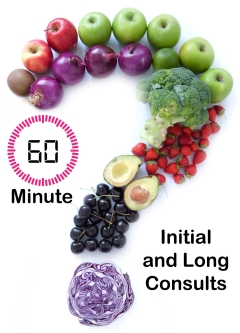DrCarney.com Blog
Eating to Avoid Debilitating Alzheimer's Disease
"Dad is 81 now. His once-brilliant mind has been ravaged by dementia. He doesn’t know my name. He rarely says two sentences in a row that make any sense," writes Grammy-award winning singer/songwriter Amy Grant. Her father was once a respected radiation oncologist. Alzheimer's has changed not only his life, but the lives of the four daughters and other family members who care for him. In an article written for Guidepost Magazine, Amy explains that there was no history of dementia in her family. The diagnosis of Alzheimer's Disease for her father and of Lewy Body Dementia for her mother (who has since passed away) was unexpected.
Many families today are facing the challenge of caring for loved ones with Alzheimer's, now the sixth leading cause of death in the United States. The following video prepared by the Alzheimer's Association outlines the very real financial and emotional toll Alzheimer's is taking on families across the nation. While the statistics are grim, the video doesn't tell the whole story; it leaves out the hope we can find in plant foods.
When we lose a loved one to Alzheimer's, we naturally begin to worry that we, too, might develop this frightening disease. Neal Barnard, MD, knows that fear. Both of his parents and all four of his grandparents had some form of dementia. His research is leading him to conclude that their fate doesn't have to be his.
We Can Make Choices to Help Avoid Disease
Dr. Barnard is convinced that lifestyle rather than genes will determine our destiny. He outlines seven steps we can take to walk away from the risk of Alzheimer's.
1. Minimize intake of saturated fat and trans fats. Dairy products, meats, and tropical oils like coconut and palm oil are the most common sources of saturated fat. Transfats are usually found in snack pastries and in fried foods; avoiding the ingredient "partially hydrogenated fat" will reduce our exposure to trans fats.
2. Let vegetables, legumes, whole grains, and fruits replace meat and dairy as the main staples of our diet. These plant-based foods have not only the macronutrients we need, but contain the many vitamins and minerals that protect brain health.
3. Vitamin E should come from plant-sources rather than supplements. Seeds, nuts, green leafy vegetables, and whole grains provide many forms of vitamin E, which research has shown to reduce risk of dementia. Supplements have only one form of vitamin E and have not been associated with reduced risk of Alzheimer's disease.
4. Find a reliable source of vitamin B12. Either supplements or fortified foods can provide B12, a vital nutrient in brain health, the nervous system, and blood cell formation. We should regularly have a blood test to make sure we are absorbing this vitamin in sufficient amounts.
[Note: I recommend my patients take vitamin B12 in the form of hydroxycobalamin.]
5. If taking a multi-vitamin, look for one without copper or iron. Only take iron supplements if they are recommended by a physician. While we do need a certain amount of iron and copper in our diet, some studies suggest that too much of these minerals can contribute to Alzheimer's.
6. The research isn't conclusive yet on the role of aluminum in Alzheimer's. For those who wish to minimize their exposure, avoid the use of cookware, antacids, baking powder, and other products that contain aluminum.
7. At least three times a week, get the equivalent of 40 minutes of brisk walking. Research shows that those who exercise during midlife are less likely than their sedentary peers to develop dementia after age 65.
We don't have to live in fear of disease. We can choose a proactive approach to health by replacing habits, supplements, and foods that carry risk with those which are full of hope and promise. Exercise and filling our plates with the synergistic combinations of vitamins, minerals, and antioxidants in low-fat, whole plant foods can keep our brains and our bodies youthful for a long time to come.
Additional Information:
(1) Beat the Odds of Getting Alzheimer's
(2) Lack of Sleep and Risk of Alzheimer's Disease
(3) Animal Fat Increases Risk of Alzheimer's Disease
(4) Which Food Items Contain the Most Aluminum?
(5) Human Genes can be Turned On and Off by Diet
Scroll Down Page to Leave Comments

Shared Successes and Struggles
We would love to hear your Success Stories or your Personal Struggles in our rapidly growing Whole-food Plant-based No-oil Online Community at https://www.DrCarney.com/community.
One Hour Phone Consult with Dr. Carney

Telephone Food Coaching Sessions with Linda Carney MD
Due to demand for nutritional advice, Dr. Carney's offers Starch-Smart® System "Dietary Care Extraordinaire" Food Coaching telephone sessions. The first sessions is always one hour. Subsequent sessions can be thirty minutes or one hour:
Click Here For 60 Minute Food Coaching Session
Please Note: Food Coaching sessions are not medical appointments and are not intended to replace your own physician. No tests will be ordered and no prescriptions will be provided.
When you subscribe to the blog, we will send you an e-mail when there are new updates on the site so you wouldn't miss them.




